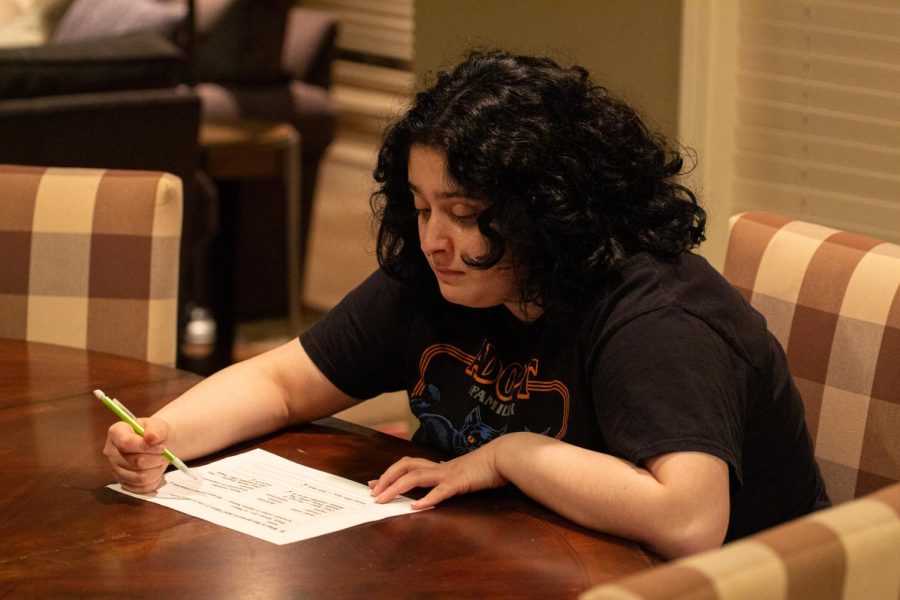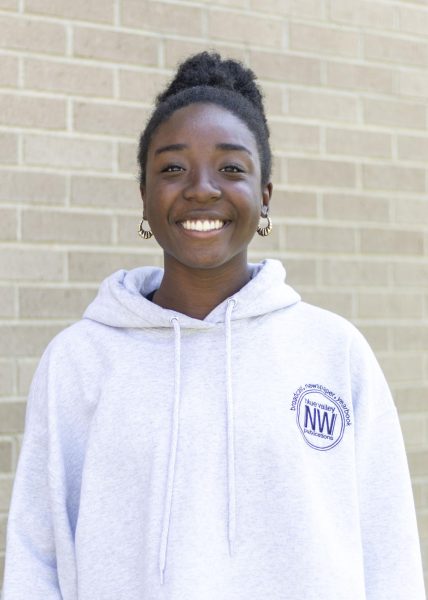Proposed update to racial identifiers sparks positive student response
The Biden administration recently proposed adding more racial identification options to the U.S. census, resulting in an enthused reaction from BVNW students.
Senior Teayom Karimpourian said she struggles when filling out racial identifiers because of the limited options available to Middle Easterners and other MENA groups.
March 27, 2023
Currently, on the U.S. census, two questions are asked: “Is this person of Hispanic, Latino, or Spanish origin?” and “What is this person’s race?,” offering “White,” “Black or African American,” “American Indian or Alaska Native,” “Asian,” “Native Hawaiian or Other Pacific Islander” and “Some other race” as options.
However, the Biden administration has recently called for significant changes to how people identify themselves racially on the 2030 census. The administration is calling for additional racial boxes differentiating between Hispanic and Latino and including Middle Eastern or North African (MENA) boxes.
The federal government originally called for adding a MENA checkbox and differentiating between Hispanics and Latinos during the 2020 census. However, those proposals were not acted on under the Trump administration.
Various MENA, Hispanic and Latino groups have been calling for this change for decades, and if this change were to be approved, it would increase the accuracy of the U.S. census.
For MENA groups, the U.S. census only categorizes them as “white” or “other.” But under this new classification, the MENA groups could differentiate themselves from white people.
For Hispanic and Latino groups, the census asks a two-part question that ultimately doesn’t capture their race. The first question asks whether a person is Hispanic or Latino. The following question, asking them to check off their race, doesn’t include a Hispanic or Latino box, leaving many of these individuals to check off the “other” box.
According to the Census Bureau, in the 2020 census, 42 percent of Hispanics marked their race as “some other race”, about a third of Hispanics marked two or more races and 20 percent chose white as their race.
These changes to the U.S. census would increase the accuracy of racial and ethnic information gathered by the U.S. census. There are also various groups advocating for removing “outdated” language from federal documents, such as the utilization of “majority” and “minority.” This sentiment was first announced by the Census Bureau in 2021 to better describe the country’s changing racial demographics.
These many changes called by the Biden administration have been met with excitement from various members of the BVNW community. Syrian freshman Lamiaa Rahima said she is excited because she believes the change called for by the Biden administration will bring about further education on various racial identities within this country.
“I was really happy and excited in a way that Middle [Easterners], North Americans and Latinos and Hispanics have new checkboxes that they can identify themselves [with],” Rahima said. “It’s really good because it gives people more ways to identify themselves.”
Indian freshman Afsheen Vishnani said she was also happy when she heard the Biden administration call for this change. However, she emphasized there are more steps to be taken by the Biden administration to achieve complete clarity on racial and ethnic identification.
“There’s definitely a lot more work that needs to be done. They’re working really slow, but I feel like this is really good because we haven’t seen any change at all,” Vishnani said.
While Vishnani has never been bothered by being classified as “Asian” on official documents, she said she thinks the lack of ethnic specification is wrong.
“There should be more like specifics instead of just ‘Asian.’ There should be, you know, Indian, Chinese, Vietnamese, Korean, like all different [ethnicities], instead of being so vague.” Vishnani said. “It’s fine that [Indians] are classified as Asian like there’s nothing wrong with that but I feel like there should be way more options than just that.”
Vishnani said she thinks the changes to the U.S. census will lead to further education concerning various races and ethnicities within this country, but will also help people throughout the community feel more accepted.
“In our school, we do a good job of making people be included. Like we have a lot of clubs like MSA, and that is a great thing,” Vishnani said.
However, she said she also hopes the new changes to the U.S. census will help eliminate racial and ethnic ignorance throughout this country, but specifically at BVNW.
“I do think that people are ignorant in our school. I feel like we need more education on that. People who are so ignorant don’t want to know and they don’t want to listen. I feel like those people specifically need to wake up,” Vishnani said.
Iranian senior Teayom Karimpourian said she feels as though this new push for changes to the U.S. census will not only further educate individuals throughout this country, but will also correct any preconceived notions about people’s races.
“People just kind of assume based on what they see, not based on what [they] are,” Karimpourian said. “There are a lot [of racial groups] and they’re not really recognized as often as I feel like they should be, so having more options will definitely shine a light on more underrepresented groups.”
Vishanani emphasized how part of the problem is people assuming others’ racial or ethnic identities.
“You should always ask someone where they’re from instead of assuming. For other people, it would be racist to just assume that they’re something else just because of their features,” Vishnani said.
As someone who is white-passing, Karimpourian said she is glad she will finally be able to check off a box that fits who she is.
“I don’t really get upset if someone calls me white, because I am white-passing,” Karimpourian said. “[But] I would always be a little upset when I had to put down a race that I’m not, and I would always feel very underrepresented in that sense.”
Ultimately, Karimpourian said she hopes this will be the start of a longer process for correct racial and ethnic identification on government documents in this country.
“A lot of the time people get underrepresented in these censuses, so to have more inclusion in that I think is really great. People will be able to have more of a presence in America,” Karimpourian said.







